Students are skipping school to hold climate strikes in 119 countries around the world today. And they’re asking adults to join them in another worldwide climate strike on September 20.
The climate strike movement began last summer after Swedish teen Greta Thunberg began skipping school to sit outside Parliament to protest her government’s lack of action on global warming.
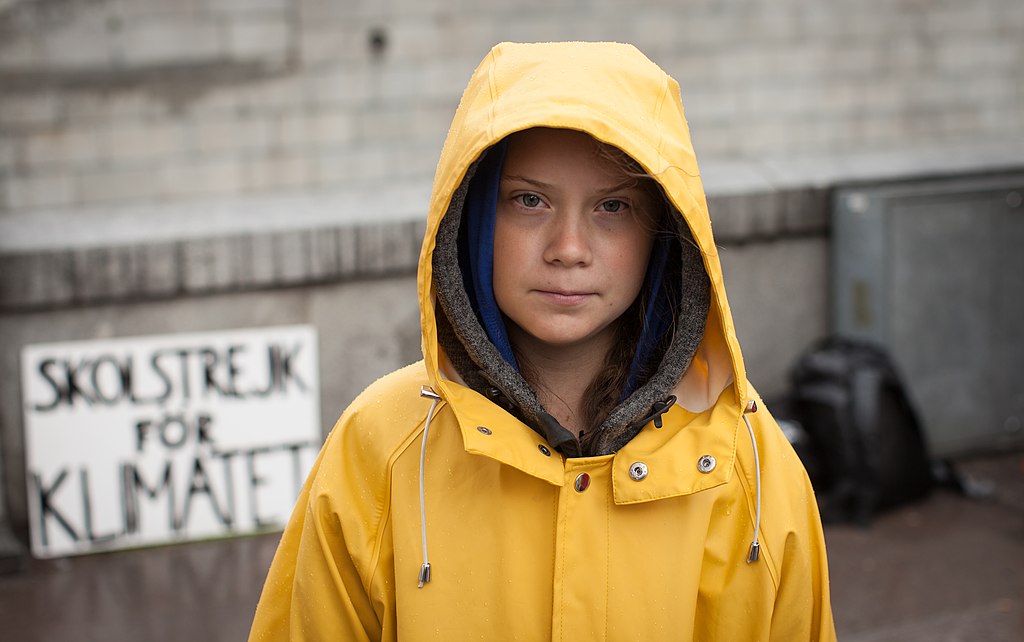
(Source: Anders Hellberg [CC BY-SA 4.0], via Wikimedia Commons.)
Climate Change
Climate change means the change in weather patterns around the world because of human activity. Global warming is one result of climate change. The world is getting hotter, mainly because humans are burning “fossil fuels” like coal, oil, and natural gas to make energy. These fuels give off pollution which makes the climate emergency worse. These kinds of pollution are often called “greenhouse gases” or “carbon emissions”.
The world’s countries have agreed to pollute less, but so far not much has changed. The effects of global heating will make life hard, and sometimes impossible, for most living things. Scientists say humans must take strong action before 2030 to avoid the worst effects of the climate emergency.
Greta’s protests began to get attention. Soon people were organizing similar protests around the world. The strikes are usually held on Fridays, which the protesters call “Fridays for Future”. Most of the protesters have been young people, worried because climate change will affect them much more than adults.
Since late 2018, massive climate strikes have been held in many countries. The last global climate strike was on March 15. It drew more than 1.6 million people in over 2,000 cities and towns around the world.
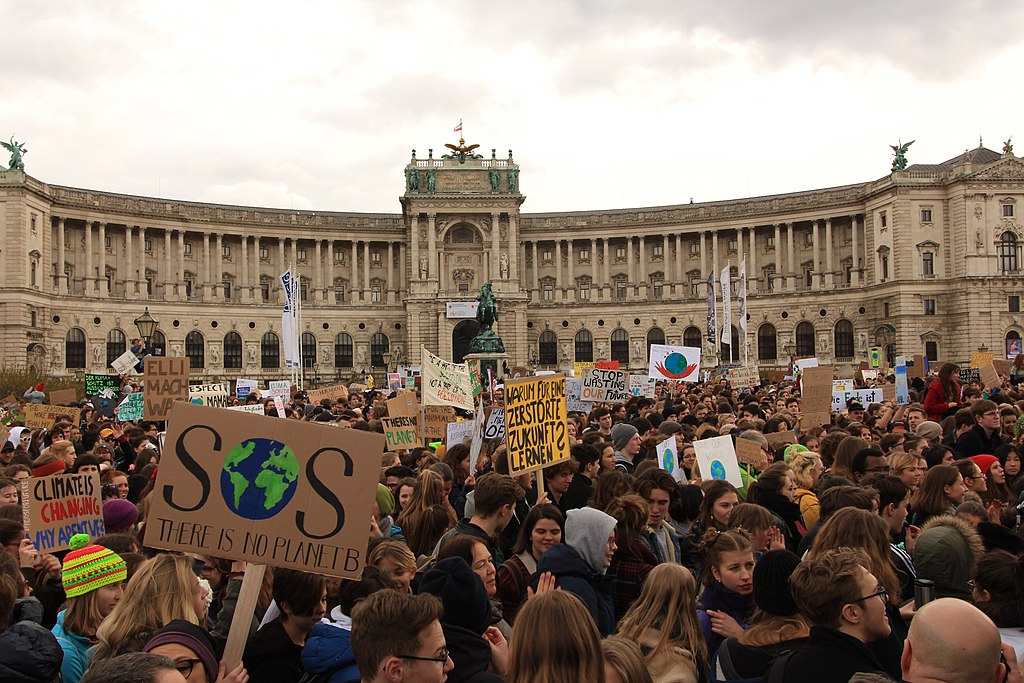
(Source: Jean-Frédéric [CC0], via Wikimedia Commons.)
Today’s strike is expected to be one of the largest student strikes ever. Protests are planned in 1,623 cities and towns across 119 countries. In the US, about 200 different strikes are planned.
Most of the recent climate news is not good. Carbon emissions keep going up. Carbon dioxide levels are now the highest they’ve been since human life began on the planet.
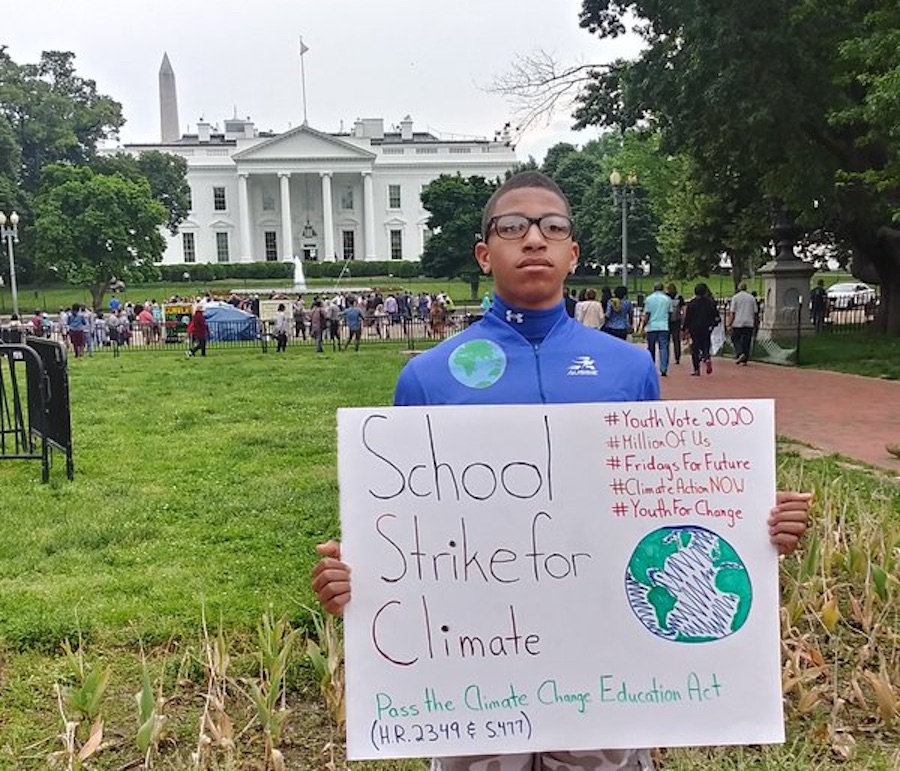
(Source: Jerome Foster II, via Twitter.)
Greta believes part of the problem is word choice. She thinks reporters should call the problem a “climate crisis” instead of “climate change”. A crisis is an emergency. Some newspapers agree. The Guardian, for example, says it will use “climate crisis” or “emergency” where possible, and “global heating” instead of “global warming”. NewsForKids.net plans to do the same.
The leader of the United Nations is worried that politicians may be losing interest in stopping climate change. Some countries, like New Zealand and Costa Rica, have created strong plans to deal with the climate crisis. But in other countries, such as Australia, voters have elected people with little interest in the topic.
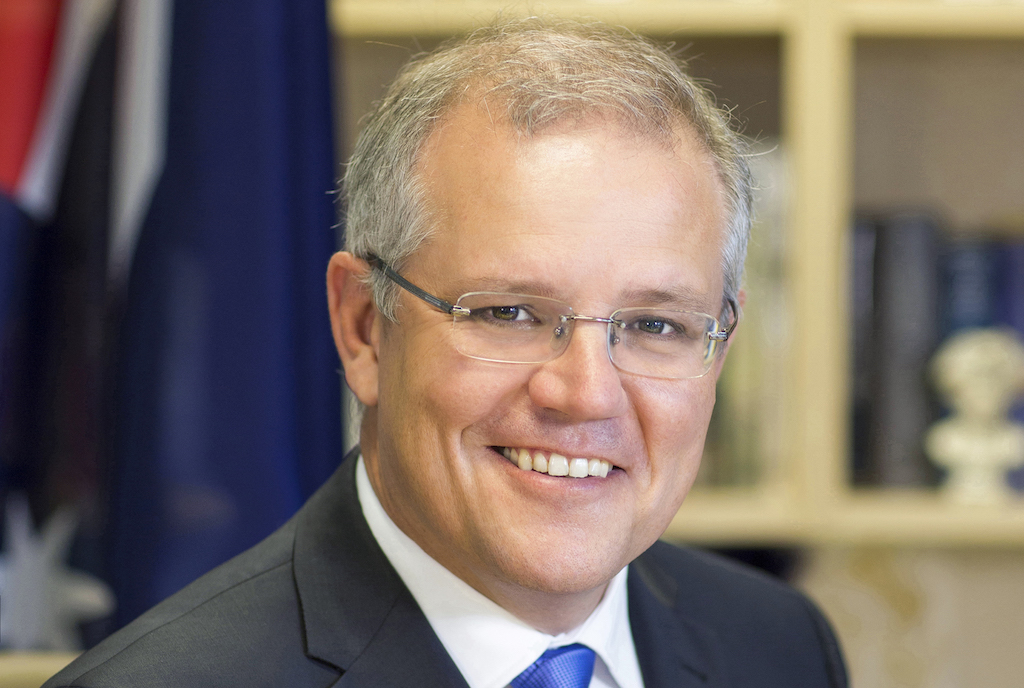
(Source: Kristy Robinson/Clrdms WikimediaCommons.org.)
One challenge is that for many people, ideas about climate change are tied to their political party. For example, in the US, most Republicans have spent a long time saying climate change doesn’t exist. Now, some Republicans are beginning to change their minds. But for many, accepting that there is a climate crisis may seem like giving up being a Republican.
But scientists have learned that children are good at teaching their parents about climate change. In one experiment, students were taught about climate change in school. After the students shared what they knew with their parents, the attitudes of the parents changed. And attitudes changed the most in the parents who weren’t worried about climate change before.
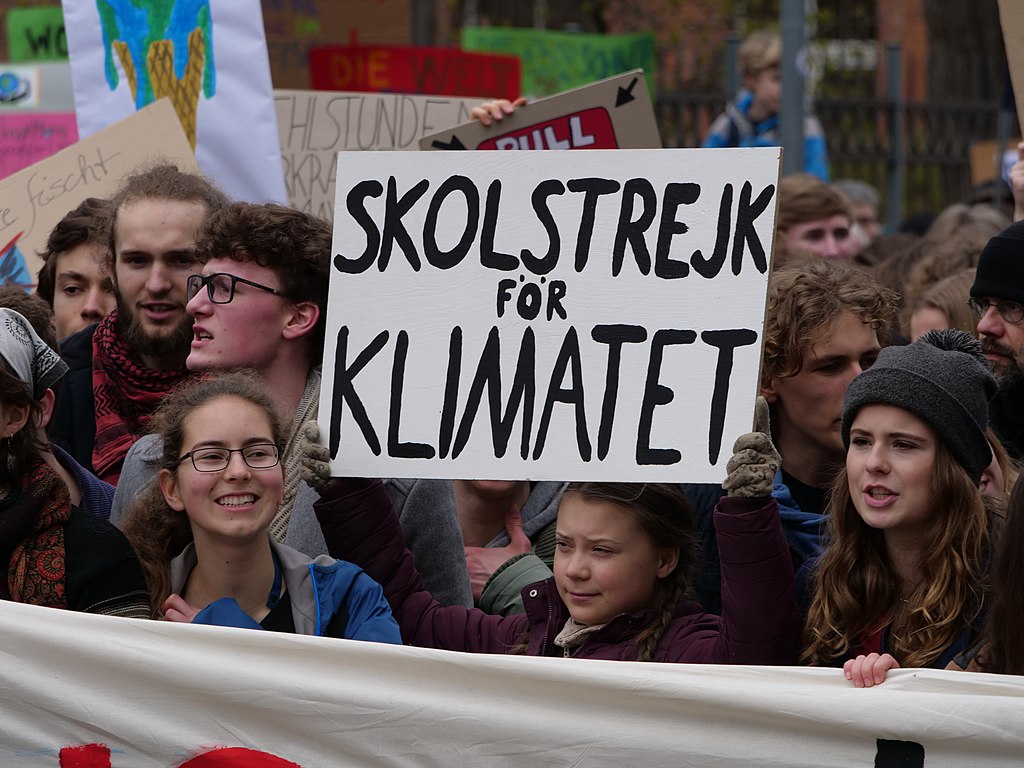
(Source: Leonhard Lenz [CC0], via Wikimedia Commons.)
Now Greta and over 40 other student climate strikers are hoping to change lots of adult attitudes. They’re asking adults to join them in a massive global climate strike on September 20.
“We have learned that if we don’t start acting for our future, nobody else will make the first move,” they wrote. “But to change everything, we need everyone. … If we care, we must do more than say we do. We must act. We’re counting on you.”
